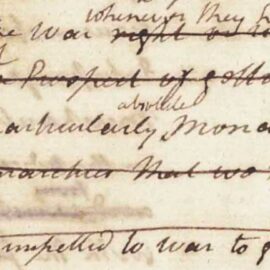

This article is an excerpt from the Shortform book guide to "The Road Less Traveled" by M. Scott Peck. Shortform has the world's best summaries and analyses of books you should be reading.
Like this article? Sign up for a free trial here .
Why does there seem to be tension between science and faith? Why are so many scientists atheists?
In The Road Less Traveled, Dr. M. Scott Peck touches on the tension between science and faith. He shares two reasons why many scientists reject evidence of God, and he asserts that theists dismiss the legitimacy of science.
Keep reading to learn Dr. M. Scott Peck’s view on the perceived discord between science and faith.
The Tension Between Science and Faith
According to Dr. M. Scott Peck, there is a natural dissonance between the concepts of science and faith. For example, scientists are generally unwilling to accept evidence of God. There are two reasons for this.
Reason #1: God Cannot Be Measured
Science is based entirely on the ability to observe, experience, and verify. Consequently, truth is defined by what is measurable. For something to be measurable, it has to be experienced and observed with replicable accuracy. Anything that is not predictable enough to fit within these boundaries is often rejected. God is abstract and cannot be measured. Therefore, many scientists don’t take the concept of God seriously.
Reason #2: God Does Not Abide by Natural Laws
Using its methodology of measurement, science has determined a number of natural laws used to make sense of observable phenomena. These laws have become deified, and when something observed doesn’t fit into one, it is seen as illegitimate.
Dr. M. Scott Peck asserts that religion similarly dismisses the legitimacy of science, arguing that those who believe in God don’t feel there is value in measurement or tangible understanding of what cannot be explained. Both science and faith refuse to compromise their perceptions.

———End of Preview———
Like what you just read? Read the rest of the world's best book summary and analysis of M. Scott Peck's "The Road Less Traveled" at Shortform .
Here's what you'll find in our full The Road Less Traveled summary :
- The four key elements in the path to enlightenment
- The importance of spiritual competence in relation to mental health
- How you can face challenges and grow through hardship






